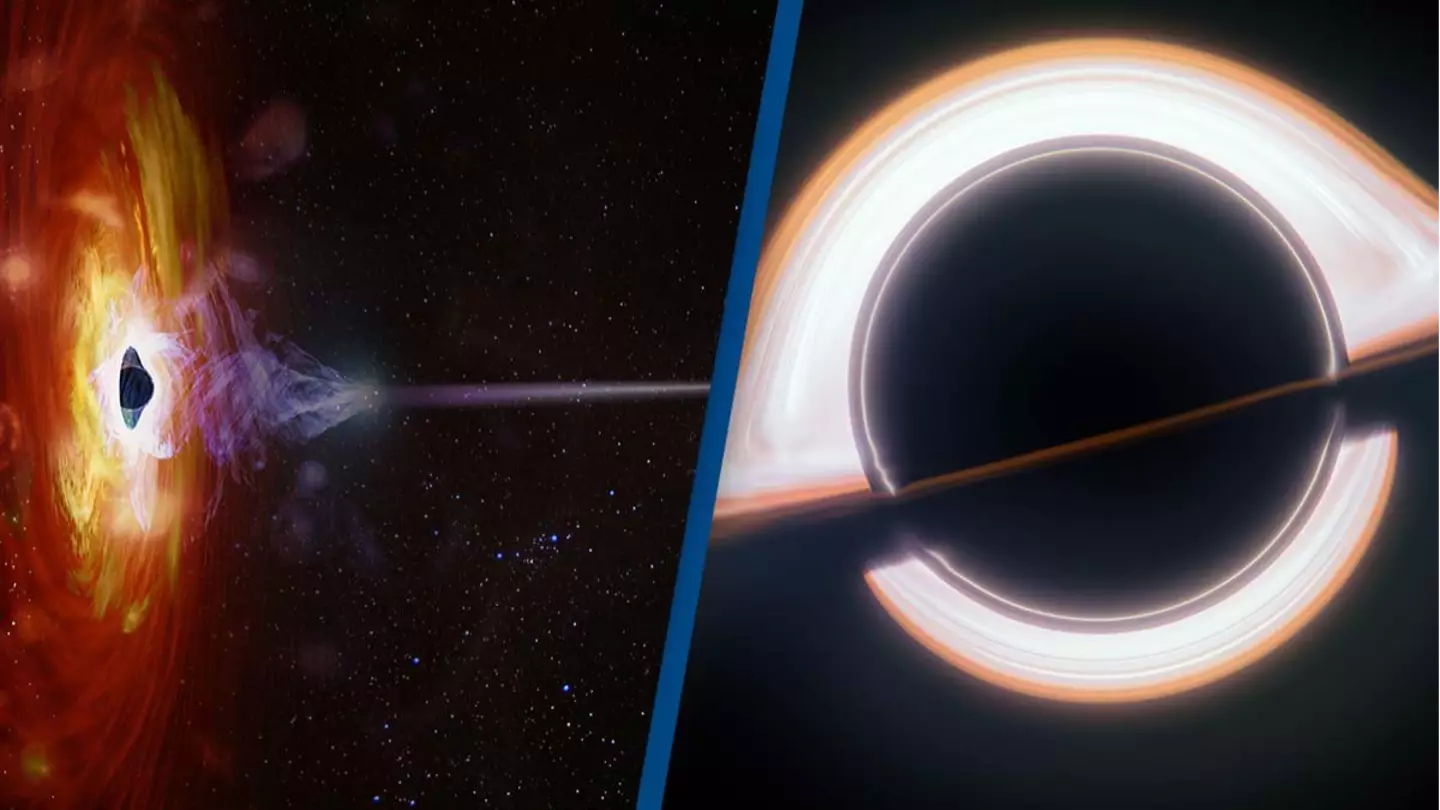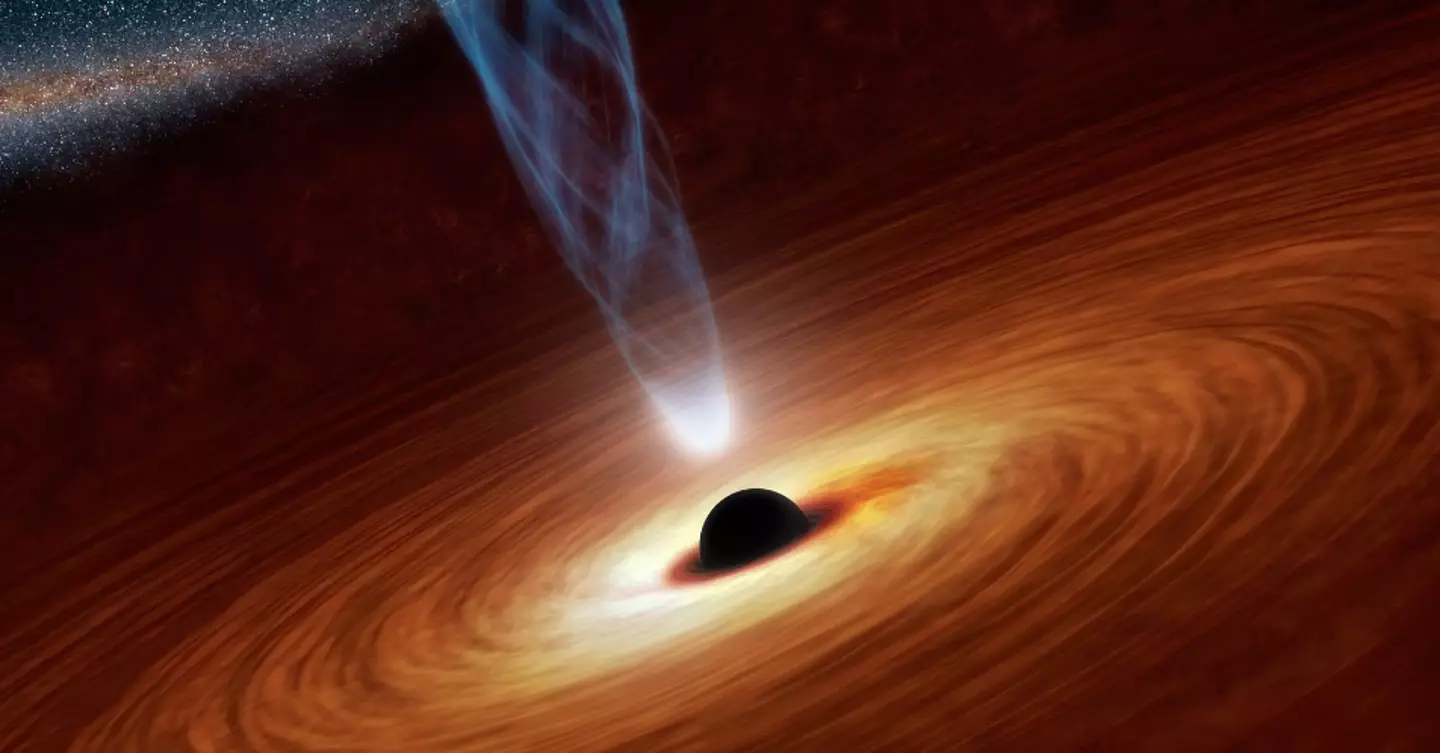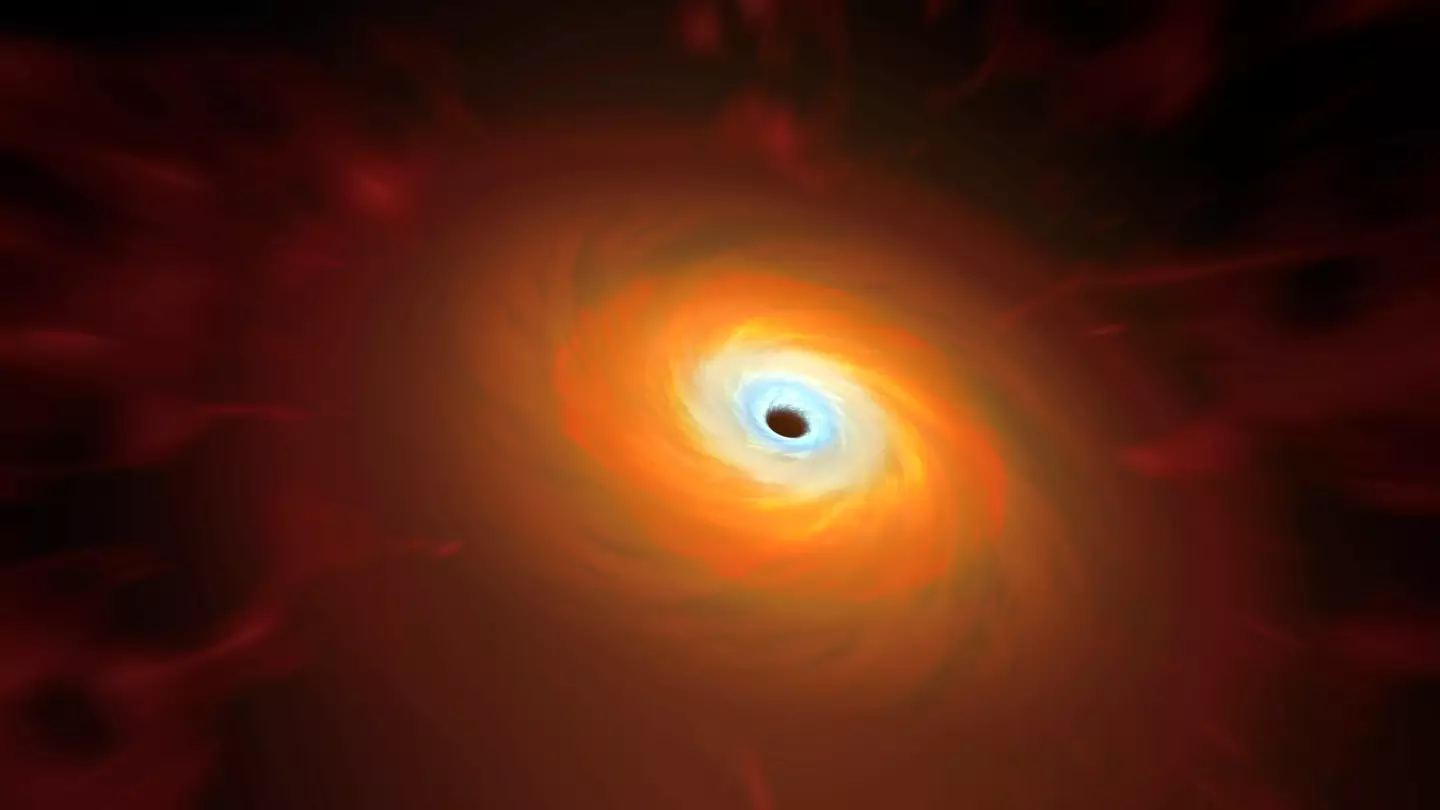
Astronomers have identified a blast of visible light as having come from a black hole pointed directly towards Earth.
No, this isn't something out of a sci-fi film. The incredible discovery marks the first time scientists have seen a black hole use light, prompting excitement as it came from a region of space where no light had been observed before.
These findings have been recorded in two scientific journals - one in Nature in an article entitled 'A very luminous jet from the disruption of a star by a massive black hole', and another in Nature Astronomy called '‘The Birth of a Relativistic Jet Following the Disruption of a Star by a Cosmological Black Hole'.
Advert

The light reportedly gives off more light than one trillion suns. Pretty impressive, to be fair.
It came about after a star drew too close to a black hole and was torn apart, the resulting blast being seen throughout the universe.
This event is known as a tidal disruption event (TDE). In about one percent of cases, plasma and radiation is sent out of both sides of the black hole.
Advert

The light which reached Earth is believed to have started its journey when the universe was a third of its current age.
An unusual thing about this TDE was that it was so bright - primarily because of it being directed towards the Earth. This meant it was a more intense episode.
This TDE took place in February as scientists turned their telescopes - among the most advanced in the world - towards the source.
Advert
Astronomers are hoping this most recent activity can be studied in order to learn more about TDES, so they can be better understood.
Last month, astronomers were left scratching their heads after a supermassive black hole essentially 'burped' up a star that it had 'eaten' three years ago.
Back in 2018, scientists witnessed a small star in a galaxy 665 million light years away from Earth get torn to shreds when it got a little too close to a black hole - which, at the time, was nothing out of the ordinary.
But in June 2021, astronomers were caught 'completely by surprise' when that same black hole lit up the skies by spitting out stellar matter.
Advert
This was particularly strange to experts, since the black hole hadn't swallowed anything new since its 2018 feast.
“This caught us completely by surprise — no one has ever seen anything like this before,” said Yvette Cendes, the lead author of a new study analysing the phenomenon.
